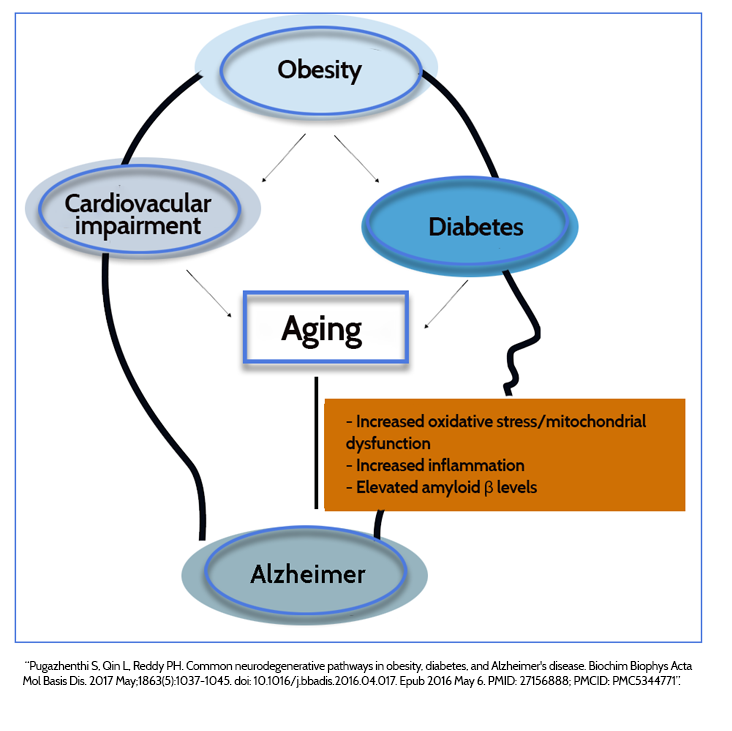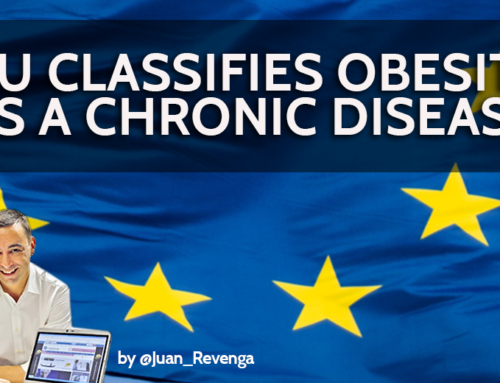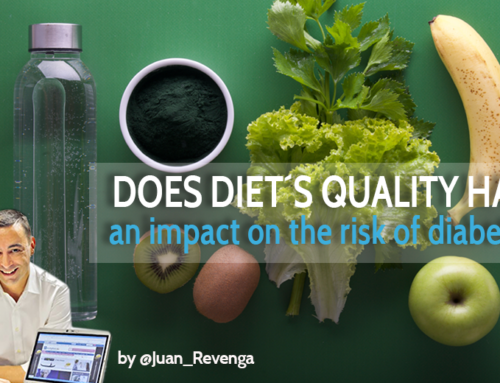Diabetes y Alzheimer, did you know?
Professionally, there are some things that I find very striking; I would even say that they annoy me. And that frustrate me. Or something halfway between discomfort and frustration. And it is a question of experience rather than “knowledge.”
One of these things is, for example, to contrast how the general population lives with its back turned to the tsunami that type 2 diabetes represents in the public health panorama. This is not the first time I have commented on it in this corner, and the repetition of my denunciation is perhaps a sign of my frustration.
If you consult the most elementary medical guides and books, you will find incontrovertible data on how the diagnosis of diabetes increases the risk of more than a few chronic complications.
Most of them have their origin in a vascular problem, both when they affect the large arteries and the smaller ones, typically in the retina and the kidney. Thus, in the long term, the most poorly managed cases of diabetes with the worst evolution are likely to lead to diabetic retinopathy, chronic kidney disease, heart disease and even limb amputations. But beyond the “classic” consequences, science is becoming increasingly clear about the links with other health complications that are not unimportant. One of them, which we have already mentioned in this space, is periodontitis (not to mention COVID19); and another, more far-reaching if possible, is Alzheimer’s disease.
Insulin, mitochondria, inflammation and the nervous system
It is possible that quite a few readers are now having breakfast with this link, they cannot be blamed. In their defense it can be argued that the discovery of this relationship is relatively novel, not unpublished, but certainly recent. In fact, the number of publications dealing with the relationship between two pathological entities was practically insignificant until the 1990s, when annual publications began to skyrocket. So much so that the first study showing a strong association between these two entities dates back to 1999.
 There are currently more than 6,500 papers indexed in the National Library of Medicine of the United States (PubMed for friends) that address this reality and try to explain the physiological mechanisms that cause them (they are not yet clearly defined). Interest is growing and it is a field under study that is attracting increasing attention.
There are currently more than 6,500 papers indexed in the National Library of Medicine of the United States (PubMed for friends) that address this reality and try to explain the physiological mechanisms that cause them (they are not yet clearly defined). Interest is growing and it is a field under study that is attracting increasing attention.
One of the most recent reviews on this topic begins by stating that both diabetes and obesity are two of the most obvious modifiable risk factors for Alzheimer’s disease (the most common cause of dementia accounting for 60-80% of all cases). It highlights that recent scientific advances indicate that the elderly diabetic population is more susceptible to cognitive decline associated with aging than older people without diabetes.

What do we know about the causes?
With respect to the ultimate causes, and although it is recognized that this is a field in which active research is still needed, several mechanisms are proposed, which are not necessarily exclusive:
- Brain insulin resistance: So much so that, based on the neuroendocrine disorders associated with Alzheimer’s disease, some authors have even coined a “new” type of diabetes, type 3. The fact is that, speaking of insulin – as we know, a molecule whose alteration is intrinsically related to cases of diabetes – this molecule would control the processes of neurotransmitter release in the synapses, activating those signaling pathways associated with learning and long-term memory.
- Amyloidogenesis: Amyloid plaques are the result of the accumulation of a protein in the extraneuronal space characteristic of people affected by Alzheimer’s disease, preventing a correct connection between neurons and causing their degeneration. Several studies have highlighted the increase in the extracellular concentration of beta-amyloid in cases of sustained hyperglycemia.
- Inflammation and oxidative stress: It is widely assumed that both circumstances are the cause of neurodegeneration and, in turn, that diabetes leads to an altered metabolism that ends up in the first stages of neurodegeneration..
- Mitochondrial pathology: Many studies have found an etiological link in the origin of Alzheimer’s disease and diabetes, and this would be mitochondrial dysfunction… without this alteration being a co-pathology of the two previous ones..
- Dysbiosis: which for some time now has become a kind of a free card for the causation of various pathologies, dysbiosis. Thus, an unbalanced gastrointestinal ecosystem (dysbiosis) contributes to the development and maintenance of several diseases, such as Alzheimer’s disease, depression and type 2 diabetes mellitus.
Bidirectional interactions between diabetes and Alzheimer’s disease
Again, as in the case of periodontitis, the question arises as to the direction of causality: whether diabetes increases the risk of Alzheimer’s disease or whether it is the other way around. However, there is little doubt at present that either condition would facilitate the development of the other.
In any case, although the pathophysiological mechanisms are clearer in demonstrating that type 2 diabetes mellitus acts as an accelerator in the progression of Alzheimer’s disease. Without ignoring the fact that both pathological entities present a strong genetic load, the fact is that, so far, ten common genes have been identified in both pathologies.

Latest posts by Juan Revenga Frauca (see all)
- Obesity recognized as a chronic disease - 13 October, 2021
- Who said you have to eat everything? - 7 October, 2021
- Diabetes and Alzheimer - 29 January, 2021








